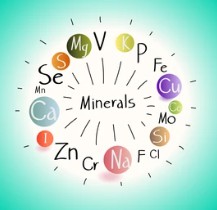The analysis and identification of tea contain as many as 500 kinds of compounds. Some of these compounds are essential for the human body, such as vitamins, proteins, amino acids, lipids, sugars, and mineral elements, which have a high nutritional value for the human body. Tea contains large amounts of elements (phosphorus, calcium, potassium, sodium, magnesium, sulfur, etc.) and trace elements (iron, manganese, zinc, selenium, copper, fluorine, and iodine, etc.) required by the human body. Tea contains high levels of zinc, especially green tea. These elements have an essential role in the physiological functions of the human body. Regular tea consumption is one of the essential channels to obtain these mineral elements.

There is widespread concern that concentrations of certain trace elements in tea above the critical range can adversely affect human health. The presence of trace elements in tea is due to the fact that tea plants are usually grown in highly acidic soils where the bioavailability of trace elements for root uptake is likely to be higher. Trace element levels in tea can have beneficial effects on human health, but certain trace element concentrations above a critical range can have adverse effects on human health. We mainly test the general metal nutrients in tea according to national standards. Tea general metal nutrients test items include the following:
| Macronutrients in Tea | Calcium, phosphorus, magnesium, potassium, sodium, sulfur, chloride, etc. |
| Essential Trace Elements in Tea | Iron, zinc, copper, cobalt, molybdenum, selenium, iodine, chromium, etc. |
| Potentially Essential Trace Elements in Tea | Manganese, silicon, nickel, boron, vanadium, etc. |
As a recognized leader in tea testing, Lifeasible can help you develop the best tea general metal nutrient testing solution to detect the levels of major and trace elements in tea and its brewing liquids. Work closely with our team of experienced scientists to find simple and reliable analytical solutions for detecting macro- and trace elements in tea. Our laboratory has established clear and straightforward methods to help clients analyze general metal nutrients in a variety of tea products, including but not limited to:
Tea of different origins is affected by local soil, climate, and other factors, and the general metal nutrients it is rich in vary significantly. With the aid of cutting-edge ICP-OES, ICP-MS, and other instrumentation facilities, we can determine the content of 20 general metal elements such as K, Ca, Mg, Mn, B, Cu, Fe, Ni, Zn, Cr, Co, etc. for multiple samples of tea from different origins. By analyzing the content of trace elements, we aim to reveal their potential underlying value to assess the tea quality. Our efficient customer-focused service will guarantee the quality of your results and save you time and money. If you are interested in our solutions, please contact us for technical consultation and quotation.
Lifeasible has established a one-stop service platform for plants. In addition to obtaining customized solutions for plant genetic engineering, customers can also conduct follow-up analysis and research on plants through our analysis platform. The analytical services we provide include but are not limited to the following:
Get Latest Lifeasible News and Updates Directly to Your Inbox
Adaptive Evolutionary Mechanism of Plants
February 28, 2025
Unraveling Cotton Development: Insights from Multi-Omics Studies
February 27, 2025